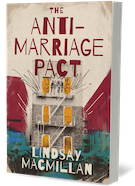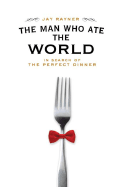Notes: Bookstores Close, Move, Open; Bad Art Winner
After nearly a quarter century with a presence in lower Manhattan in New York City, the Strand Book Store is closing its 15,000-sq.-ft. Strand Book Annex at 95 Fulton Street, effective August 31. Beginning next Monday, all inventory in the store will be discounted 20%. The Strand's flagship store at 828 Broadway and Central Park kiosks remain open for business.
The lease on the space was up for renewal, and the landlord planned to raise the rent 300%, according to the Downtown Express. Co-owner Fred Bass told the paper that construction on the street for the past year hurt business and would continue into 2009. The Strand owns the building its main store is in, so lease hikes are not a problem there.
---
One of the few people let into the University of Iowa's flooded main bookstore, director George Herbert Jr., told the National Association of College Stores's Campus Marketplace that the damage was "pretty bad."
The store had been renovated two years ago. "I don't know how to explain how it felt. Your heart just drops down to your stomach a little bit. All the work we put into it, getting the renovation approved, and two years of work, just to have it totally wrecked."
He added, "Anybody that doesn't believe water is not powerful should have chance to see this. There were stoves knocked over, freezers pushed over--it was just amazing."
To read the full story, click here.
---
A 15,500-sq.-ft. Books-A-Million opens today at 2605 West Osceola Parkway in Kissimmee, Fla. The store is BAM's 37th in Florida.
---
Bookselling This Week profiles Azizi Books, an African-American specialty store in Matteson, Ill., 30 miles south of Chicago, that opened last November.
The 1,400-sq.-ft. store carries about 7,000 titles, and has a "clean and contemporary feel," Maia Roberts, who owns the store with her father, Kevin Roberts, told BTW. The most popular sections are children's books, fiction and biography. Sidelines include DVDs, note cards, journals, small African art sculptures and shea butter products from Nature's Shea Butter.
The Robertses founded an online store, blackbooksdirect.com, several years ago and have a separate site for the store, azizibooks.com, as well as a blog, azizibooks.blogspot.com.
---
"After six years of being a downtown staple to book lovers," Well Fed
Head Books, Springfield, Mo., has relocated to south Springfield at
the newly-redesigned Fremont Center, according to Ozarksfirst.com. The bookshop will open in its new location July 1.
"For
us the big draw is that it's a big shopping area, and we'd like to
experiment having our business there," said owner Mike Sowers.
"Downtown has definitely been in a transitional period for the last
several years as far as construction but really for us it's going to a
place, and trying something new, just feels right."
---
"I
love this place. I love the smell of it," Ray Bradbury said this week
during his final visit to Acres of Books, Long Beach, Calif., which may
close by the end of the year. LBReport.com featured excerpts, photos and a video of Bradbury's eloquent defense of the bookstore.
"If
this place could be kept here, if you're going to build a mall, they
should build it around here," he added. "They should be the center of
the mall. They should be a shrine. They should have a crucifix up in
front. I will come and bless the goddamn place. And I mean that. I want
this store to remain here and they can build a mall around it . . . It
should be surrounded by other fascinating stores. It shouldn't be
moved. It shouldn't be changed because it's the best bookstore in Long
Beach and one of the best in California."
Earlier this year (Shelf Awareness, April 5, 2008), the owners decided to sell the store's building to the Long Beach redevelopment agency.
---
To celebrate the publication of Museum of Bad Art: Masterworks by Michael Frank and Louise Reilly Sacco ($14.95, 9781580089111/1580089119), a photographic catalogue of 60 works in the permanent collection of the Museum of Bad Art in Dedham, Mass. (a real museum!), Ten Speed Press held a contest challenging entrants to name and interpret an anonymous work owned by MOBA. (The Museum is in the Dedham Community Theater, "conveniently located just outside the men's room," and open whenever movies are shown.)
The contest winner, judged by the Museum of Bad Art: Masterworks authors, who are curator-in-chief and the permanent acting interim executive director (bad title) of the Museum, is a combination of two entries. Check it out and see other entries right here.
---
John e-Steinbeck. Penguin Group has released 11 Steinbeck titles in e-book format, including The Grapes of Wrath, Of Mice and Men and East of Eden. In the near future, all his books will be available electronically.
|






SHELFAWARENESS.0213.S4.DIFFICULTTOPICSWEBINAR.gif)







SHELFAWARENESS.0213.T3.DIFFICULTTOPICSWEBINAR.gif)
 Robert Crais is the author of the Elvis Cole novels, beginning with The Monkey's Raincoat, and continuing with his July 1 release from S&S, Chasing Darkness, 12th in the series. He has also written two non-series novels, Demolition Angels and Hostage, and one book featuring Cole's friend, Joe Pike. A native of Louisiana, he grew up on the banks of the Mississippi River in a blue-collar family of oil refinery workers and police officers. He purchased a secondhand paperback of Raymond Chandler's The Little Sister when he was 15, which inspired his lifelong love of writing, Los Angeles and the literature of crime fiction. After years of amateur filmmaking and writing short fiction, in 1976 he journeyed to Hollywood, where he quickly found work writing scripts for such major television series as Hill Street Blues, Cagney & Lacey and Miami Vice. He received an Emmy nomination for his work on Hill Street Blues, but is most proud of his four-hour NBC miniseries, Cross of Fire, which the New York Times called "a searing and powerful documentation of the Ku Klux Klan's rise to national prominence in the '20s." Crais lives in the Santa Monica mountains with his wife, three cats and many thousands of books. Here he answers a few questions we put to him:
Robert Crais is the author of the Elvis Cole novels, beginning with The Monkey's Raincoat, and continuing with his July 1 release from S&S, Chasing Darkness, 12th in the series. He has also written two non-series novels, Demolition Angels and Hostage, and one book featuring Cole's friend, Joe Pike. A native of Louisiana, he grew up on the banks of the Mississippi River in a blue-collar family of oil refinery workers and police officers. He purchased a secondhand paperback of Raymond Chandler's The Little Sister when he was 15, which inspired his lifelong love of writing, Los Angeles and the literature of crime fiction. After years of amateur filmmaking and writing short fiction, in 1976 he journeyed to Hollywood, where he quickly found work writing scripts for such major television series as Hill Street Blues, Cagney & Lacey and Miami Vice. He received an Emmy nomination for his work on Hill Street Blues, but is most proud of his four-hour NBC miniseries, Cross of Fire, which the New York Times called "a searing and powerful documentation of the Ku Klux Klan's rise to national prominence in the '20s." Crais lives in the Santa Monica mountains with his wife, three cats and many thousands of books. Here he answers a few questions we put to him: Is there room in our gullets for another foodie memoir? For that matter, is there room for another memoir in that new subset wherein the author picks something to do for a year (having sex every night, eschewing products made in China, etc.) and then writes about it? In the case of The Man Who Ate the World, the answer is an unequivocal yes. Devoid of the preciousness of much food writing, Jay Rayner's laugh-out-loud funny account of grazing his way through the world's high-end restaurants is unputdownable.
Is there room in our gullets for another foodie memoir? For that matter, is there room for another memoir in that new subset wherein the author picks something to do for a year (having sex every night, eschewing products made in China, etc.) and then writes about it? In the case of The Man Who Ate the World, the answer is an unequivocal yes. Devoid of the preciousness of much food writing, Jay Rayner's laugh-out-loud funny account of grazing his way through the world's high-end restaurants is unputdownable.